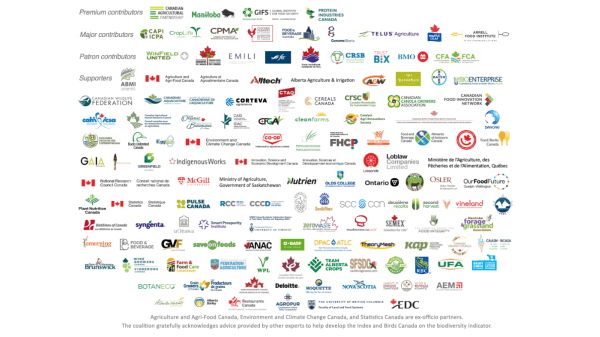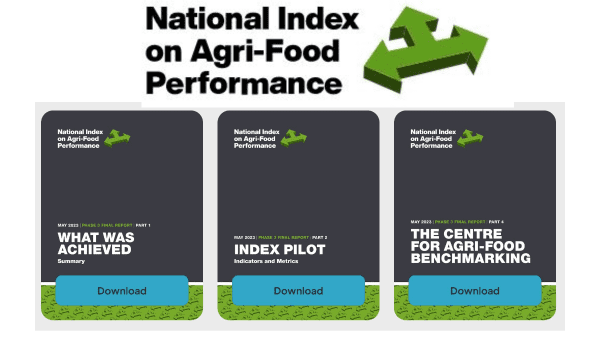Index provides comprehensive reporting framework designed to accelerate sector-wide action
Canada has published its first sustainability index for the country’s agriculture and food sector, the National Index on Agri-Food Performance, as a pilot. It presents a holistic frame of reference of sustainability priorities, with the goal to help align this diverse sector on reporting, to step-up transparency and to ready Canada’s agri-food supply chains for new global disclosure standards that are coming in 2024 and to meet other sustainability expectations. The Index complements extensive work underway to advance and measure sustainability across Canada’s food system.
The Index’s 20 indicators detail some 130 metrics. The measures include the environment, food integrity (including food safety), economic, and societal well-being priorities (including matters relating to the workforce, food security and farm animal care).
An unprecedented private-public coalition has driven this work forward. With 129 partners, the coalition has grown in size by some 50% since last year. Partners include representation from across agri-food supply chains, social, environmental and Indigenous NGOs, academia, innovation and technology organizations, financial institutions, and three levels of government, among many others (see p. 2).
The initiative addresses one of the most pressing issues facing humanity: producing food more sustainably – and showing it. The work also positions Canada as among the very few nations globally that have developed such a comprehensive approach encompassing an entire economic sector.
“The global imperative to reduce emissions, address the crisis of climate change and deliver on a breadth of sustainability expectations is redefining what it means to be a leader in today’s agri-food world,” says David McInnes, the project’s coordinator. “This Index can now present the sector’s overall credentials and help distinguish Canada’s trusted food brand globally and back up sustainability claims at home.
While the Index does not score individual producers or companies, it presents consolidated national results from production to food retail, reporting on positive sustainability performance, areas needing improvement and the data gaps. Such insights are expected to be used inform policy, strategy, and research priorities.
Improving the sustainability measures and benchmarking change over time is also a priority for the partners. The intended next step, once funding is secured, involves setting up a new Centre for Agri-Food Benchmarking to evolve the Index and engage with even more stakeholders. The Centre would be housed by the Canadian Agri- Food Policy Institute.
“Compiling the breadth of sustainability measures into one place for the first time is a significant milestone and doing this in lockstep with so many partners is unparalleled”, says McInnes.
Today, the following documents were published: a summary of recent work, the Index pilot, a detailed plan to operate a future Centre, and seven short papers on selected Index results about sustainability. Link to the final report: https://www.agrifoodindex.ca/publications-and-events. Link to partner testimonials on using the Index: https://www.agrifoodindex.ca/partner-testimonials
Contact: David McInnes, Founder & National Coordinator, National Index on Agri-Food Performance: daviddmcinnes@gmail.com
About the National Index on Agri-Food Performance
Since 2020, a private-public coalition has been engaged in a unique collaboration to define how the sustainability of Canada’s agri-food sector ought to be measured. The work reflects the country’s agri-food context and broadly aligns with the U.N. Sustainable Development Goals, other Canadian and global goals, and environmental, social and governance (ESG) factors being advanced in capital markets. www.agrifoodindex.ca
Coalition partners




